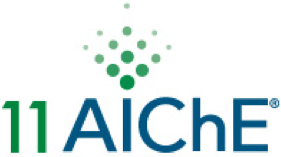

The biological pretreatment of wood biomass for degrading lignin, a complex aromatic polymer, has received much attention as an environmentally safe or “green” process. Generally, enzymes isolated from naturally occurring fungi, or with enzymes produced by genetically engineered fungi have been used for wood biodegradation. However, this approach for lignin degradation in aqueous solution has been found to be very slow mainly due to the difficulties in enzyme accessibility to the hemicelluloses and the poor solubility of the lignin. To address these issues, this presentation will describe a new approach for enzymatic delignification of wood biomass using room temperature ionic liquids (RTILs) as pretreated agents or/and (co)solvents. It is well known that ionic liquids (ILs), a potentially attractive “green” recyclable alternative to environmentally harmful organic solvents, have been increasingly exploited as solvents and/or (co)solvents and/or reagents in a wide range of applications including pretreatment of lignocellulosic biomass. The pretreatment of wood biomass comprises using the hydrophilic IL [emim] [OAc] (1-ethyl-3-methylimidazolium acetate) that possesses very high solubility of wood biomas and lignin, which makes biomass very suitable for enzymatic degradation. It has been shown that the cellulose rich materials obtained from combination effects of IL and biological pretreatment contained significantly lower amounts of lignin as compared to the amounts found when each method applied alone. The produced cellulose rich materials were characterized by acid hydrolysis, Fourier-transform infrared spectroscopy (FTIR), Scanning electron microscopy (SEM), Thermalgravimetric analysis (TGA) and X-ray diffractometry (XRD). SEM and XRD revealed considerable microstructural and crystallinity index changes in the pretreated cellulose rich materials. We believe that this newly developed environmentally friendly process will play a great role in converting cellulosic biomass, the most abundant renewable biomaterials in the world, to biomaterials, biopolymers, biofuels, bioplastics and so on.
Presenter(s)
Once the content has been viewed and you have attested to it, you will be able to download and print a certificate for PDH credits.
If you have already viewed this content,
please click here
to login.
